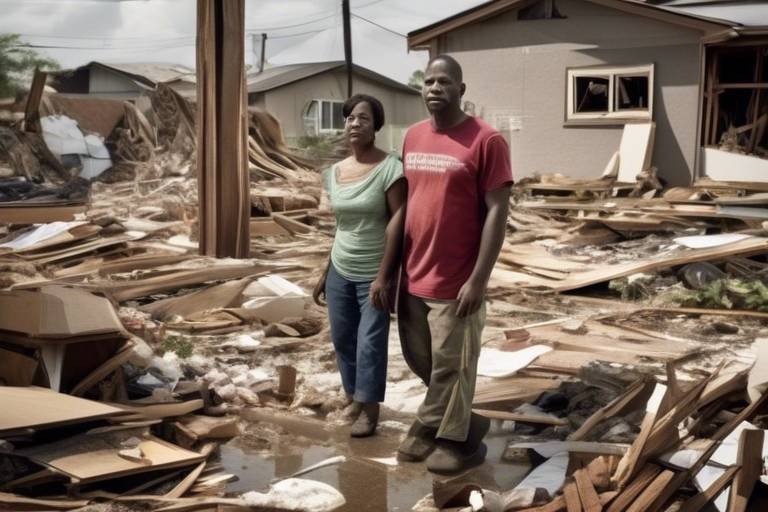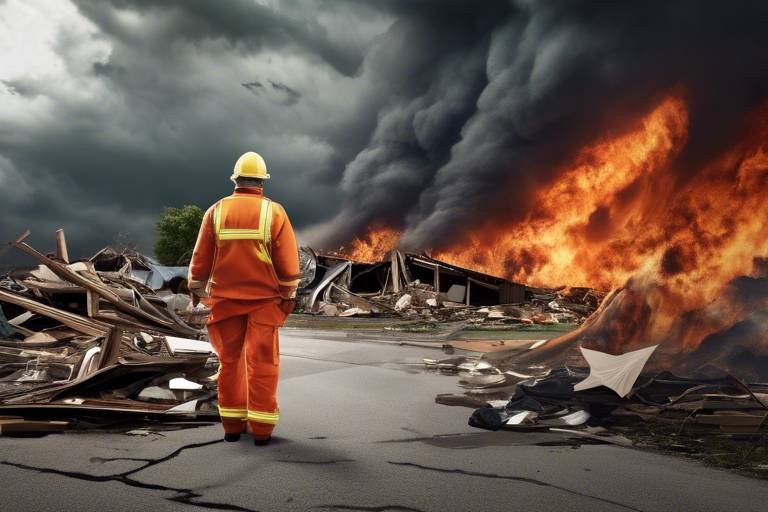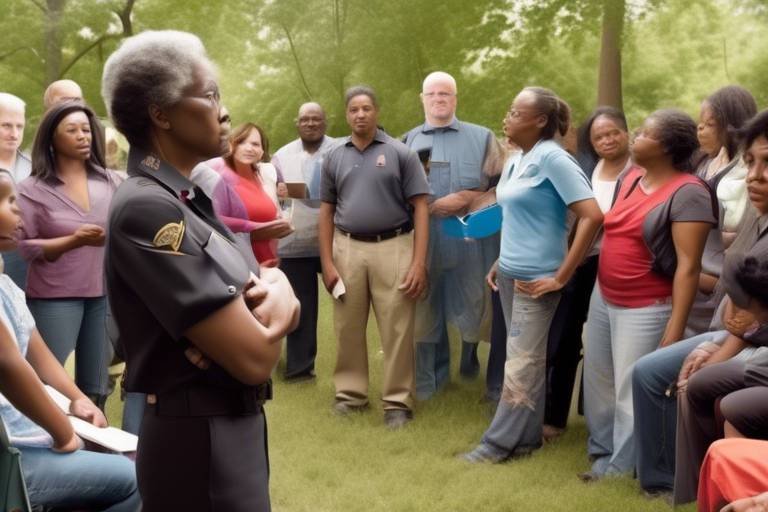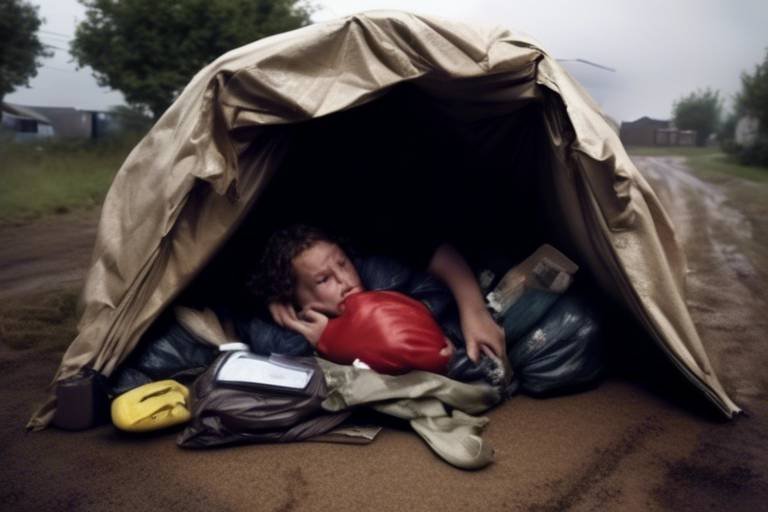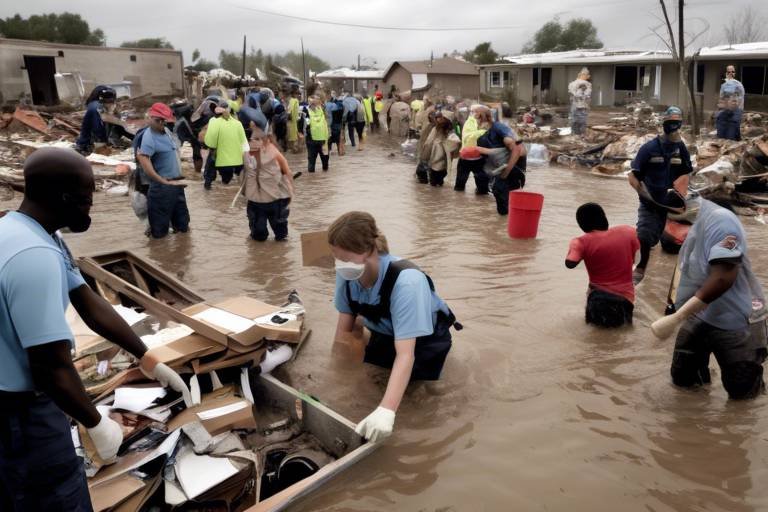Disaster Recovery: Coping with Loss and Grief
Disasters, whether natural or man-made, can leave a profound impact on our lives, often leading to emotional turmoil and a sense of overwhelming loss. The journey of recovery is not just about rebuilding what was lost; it's also about navigating the complex emotions that come with grief. Understanding how to cope with these feelings can make a significant difference in the healing process. In this article, we will explore the multifaceted nature of grief, effective coping mechanisms, the importance of support systems, and the role of cultural perspectives and rituals in the grieving process. So, grab a cup of tea, and let’s delve into this deeply human experience together.
Grief is a universal experience, yet it manifests uniquely for each individual. Understanding the stages of grief—denial, anger, bargaining, depression, and acceptance—can provide a framework for those coping with loss. However, it's essential to recognize that not everyone will experience these stages in a linear fashion. Some may find themselves cycling through these emotions, while others might skip stages altogether. This unpredictability can be frustrating, but it's a natural part of the healing process. Grief can feel like a wave that crashes over you unexpectedly, pulling you under when you least expect it. Understanding that this is normal can help ease the burden of isolation that often accompanies loss.
Coping with grief is a deeply personal journey. There are numerous strategies that individuals can adopt to aid their healing. Some may find solace in creative expression, such as painting, writing, or playing music. Others might lean towards physical activities, like running or yoga, to channel their emotions into something constructive. Additionally, connecting with nature can be incredibly therapeutic; a simple walk in a park can provide a sense of peace and grounding. It's crucial to find what resonates with you. Remember, there’s no right or wrong way to grieve. What works for one person may not work for another, and that’s perfectly okay.
One of the most vital components of recovery is the presence of a solid support system. Friends and family can provide emotional comfort, a listening ear, or even just a shoulder to cry on. It’s important to surround yourself with people who understand your pain and can offer empathy. Community support also plays a crucial role; joining a support group can connect you with others who are experiencing similar feelings. Sharing your story can be cathartic, and knowing you’re not alone in your pain can be incredibly comforting.
Sometimes, the weight of grief can feel too heavy to bear alone. This is where professional help comes into play. Therapists and counselors can offer guidance and tools to help navigate the complex emotions that arise during this time. They can assist in identifying unhealthy coping mechanisms and provide strategies to foster resilience. Seeking help is not a sign of weakness; rather, it’s a courageous step towards healing. Just as one would consult a doctor for a physical ailment, reaching out for emotional support is equally important.
In addition to professional help, self-care is an essential part of the healing journey. Techniques such as mindfulness and journaling can empower individuals to process their grief. Mindfulness allows you to be present in the moment, acknowledging your feelings without judgment. Journaling provides a safe space to express thoughts and emotions that may be difficult to articulate verbally. Here are a few self-care strategies to consider:
- Practice deep breathing exercises to calm anxiety.
- Engage in physical activities that you enjoy.
- Set aside time for relaxation and hobbies.
- Establish a routine to create a sense of normalcy.
Grief is not only a personal experience but also a cultural one. Different cultures have unique ways of understanding and expressing grief. For instance, some cultures may have elaborate mourning rituals, while others might adopt a more subdued approach. Exploring these diverse perspectives can provide valuable insights into how grief is universally experienced yet individually expressed. It’s fascinating to see how rituals, such as the Day of the Dead in Mexico or the Jewish practice of sitting shiva, serve as communal expressions of remembrance and reflection.
Rituals can provide comfort and structure during times of loss. They serve as a way to honor the deceased and help the bereaved find closure. Whether it’s lighting a candle, holding a memorial service, or creating a scrapbook of memories, these acts can be healing. Rituals can act like a bridge, connecting the living to the departed, and helping to keep their memory alive. They can also foster a sense of community among those who share in the loss, creating a space for collective mourning.
Commemorating loved ones is a powerful way to honor their memory. This can take many forms, such as planting a tree in their honor, creating a memory box filled with cherished items, or even participating in charity work that reflects their passions. These practices not only keep the memory of the deceased alive but also provide a sense of purpose and connection for those left behind. It’s like carrying a piece of them with you, allowing their spirit to continue to inspire and guide you.
The effects of loss can linger long after the initial event. Grief is not something that simply fades away; it may evolve and change shape over time. People might find that certain anniversaries or life events trigger memories and emotions associated with their loss. Understanding this enduring impact is crucial for ongoing healing. It’s important to allow yourself to feel these emotions and seek support when needed. Just like a scar, grief may fade but often remains a part of who we are.
- How long does grief last? Grief is a highly individual process, and there is no set timeline. It can last months or even years, but it often evolves over time.
- Is it normal to feel angry while grieving? Yes, anger is a common stage of grief. It's important to acknowledge these feelings rather than suppress them.
- Can I seek help if I feel overwhelmed? Absolutely! Seeking professional help is a positive step towards healing. Don't hesitate to reach out for support.
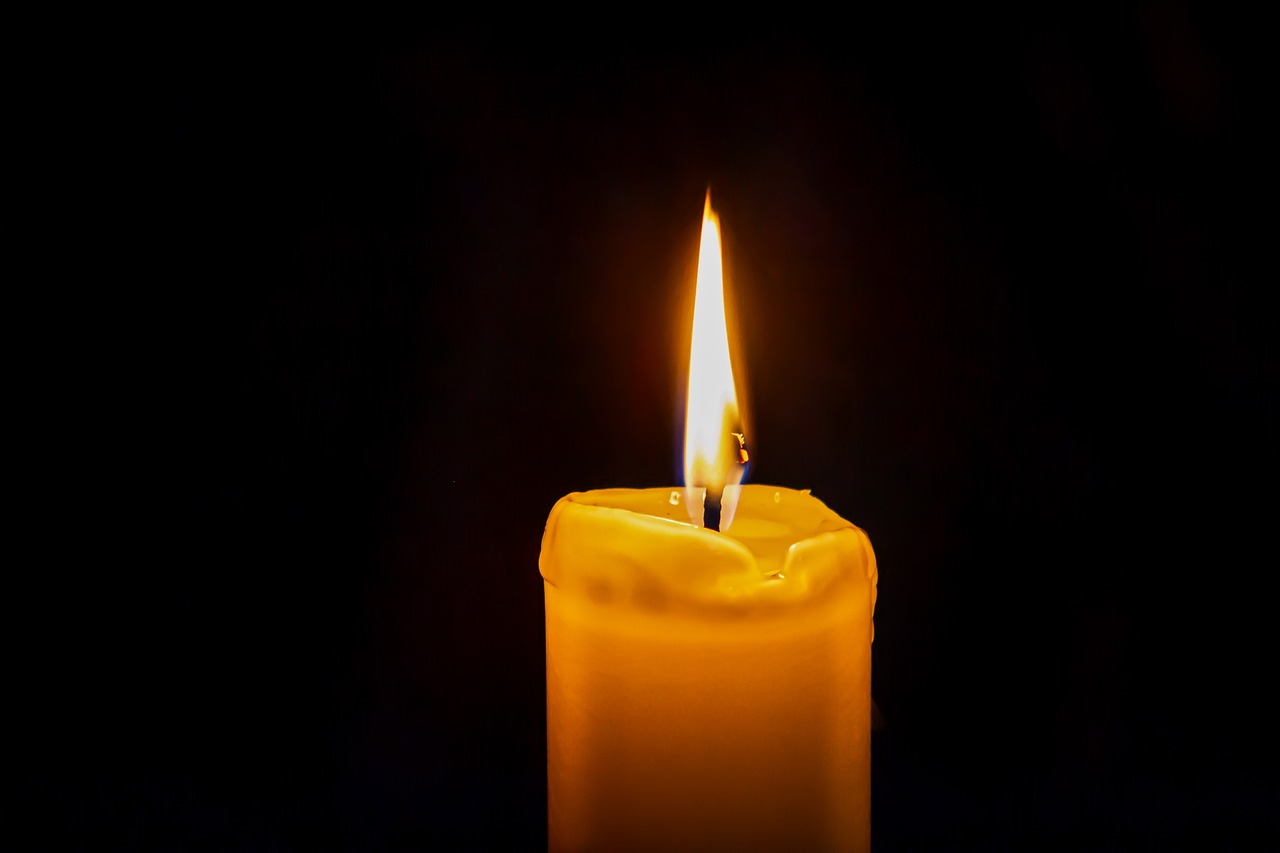
The Nature of Grief
Grief is a complex and deeply personal experience that can feel like a roller coaster ride of emotions. When we lose someone or something significant, it’s not just a fleeting moment of sadness; it’s a profound shift in our emotional landscape. Understanding the stages of grief is essential for those coping with loss because it allows us to navigate through this tumultuous journey with a bit more clarity. Grief can manifest in various ways, and it’s crucial to remember that there is no right or wrong way to grieve. Each person’s experience is unique, shaped by their relationship with the lost one, their personality, and their coping mechanisms.
The stages of grief, often referred to as the Kübler-Ross model, include denial, anger, bargaining, depression, and acceptance. While these stages provide a helpful framework, it’s important to recognize that grieving is not a linear process. You might find yourself oscillating between these stages, sometimes experiencing them simultaneously. For instance, you might feel angry one moment and then slip back into denial the next. This unpredictability can be disorienting, but it’s a natural part of the grieving process.
Let’s take a closer look at these stages:
- Denial: This is often the first reaction. It helps us survive the loss by numbing the initial shock.
- Anger: As the masking effects of denial begin to wear off, the reality of the loss sets in, leading to feelings of frustration and helplessness.
- Bargaining: In this stage, individuals may dwell on what they could have done differently to prevent the loss.
- Depression: “I'm so sad, why bother with anything?” This stage can feel overwhelming, as the weight of the loss becomes more pronounced.
- Acceptance: This is not about forgetting; rather, it’s about finding a way to move forward while still honoring the memory of what was lost.
Grief can also include a myriad of emotional responses, such as guilt, relief, confusion, and even joy when reminiscing about the good times. It’s like a patchwork quilt of feelings, each piece representing a different aspect of our relationship with the deceased. Sometimes, you might feel a wave of happiness when you remember a funny story, only to be followed by a deep sense of loss. This ebb and flow can be exhausting, but it’s a testament to the love and connection you shared.
Moreover, cultural influences play a significant role in how we experience and express grief. In some cultures, open displays of sorrow are encouraged, while in others, maintaining a stoic demeanor is the norm. Understanding these cultural nuances can help us appreciate the diverse ways people cope with loss. It’s essential to approach grief with compassion, not only for ourselves but also for others who may be navigating their own grief journeys.
Ultimately, grief is a natural response to loss, and while it can feel isolating, it’s important to remember that you are not alone. Many people have walked this path and have emerged on the other side, carrying their loved ones in their hearts while also learning to embrace life again. By acknowledging your feelings and allowing yourself to grieve, you give yourself the best chance to heal.
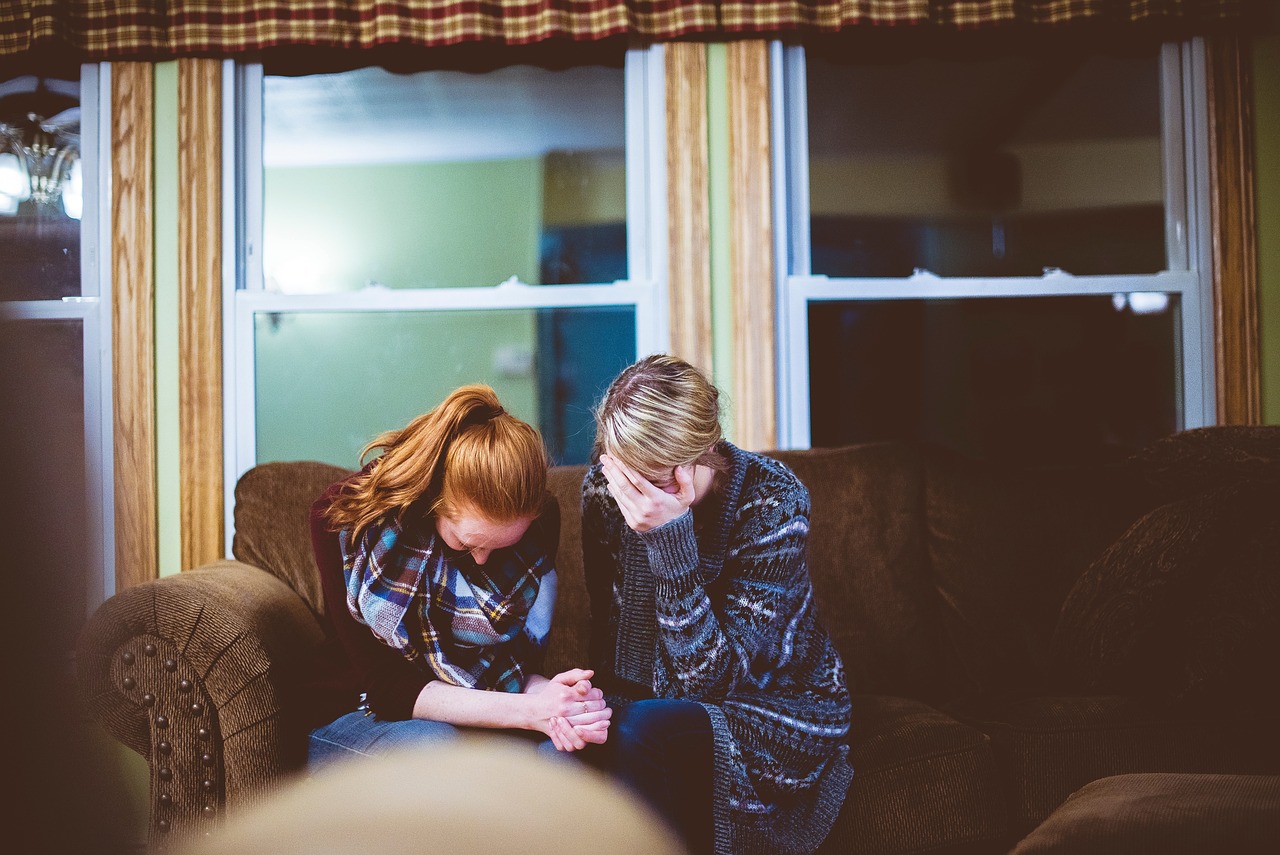
Coping with grief is like navigating through a dense fog; it can be disorienting and overwhelming. Each person experiences grief in their own unique way, and finding effective coping mechanisms is crucial for healing. Whether you’ve lost a loved one, a job, or even a sense of normalcy after a disaster, understanding how to manage your emotions can make a significant difference. So, what are some effective ways to cope with grief? Let’s dive in!
First off, it’s important to recognize that there’s no “one-size-fits-all” solution. Some people find solace in talking to friends and family, while others might prefer solitude to process their feelings. Personal strategies can include engaging in physical activities, such as going for a run or practicing yoga, which can help release pent-up emotions and reduce stress. Just like a pressure cooker needs to release steam, so do we! Engaging in physical exercise can be a great outlet for those heavy feelings.
Another effective coping mechanism is creative expression. Art, music, or writing can serve as powerful tools for processing grief. For instance, journaling can help you articulate your feelings, allowing you to reflect on your journey through grief. You might find that putting pen to paper helps you understand your emotions better, almost like having a heart-to-heart with yourself. Additionally, creating art or music can be therapeutic, providing a means to channel your feelings into something tangible.
Sometimes, it’s beneficial to seek out professional help. Therapists and counselors are trained to help individuals navigate complex emotions associated with grief. They can provide a safe space for you to express your feelings without judgment, helping you to explore the depths of your sorrow and find ways to cope. Think of them as a guiding light in the fog, helping you to find your way back to clarity. Therapy can offer valuable perspectives and coping strategies that you might not have considered on your own.
Moreover, self-help techniques such as mindfulness and meditation can also be incredibly effective. These practices encourage you to be present in the moment, allowing you to observe your emotions without getting overwhelmed by them. Mindfulness can be as simple as focusing on your breath for a few minutes each day, helping to ground you amidst the chaos of grief. It’s like taking a deep breath before diving into the deep end; it allows you to center yourself before facing the waves of emotion.
Lastly, building a reliable support network is essential. Surrounding yourself with understanding friends and family can provide a sense of comfort and belonging. Sometimes, just knowing that someone is there to listen can lighten the emotional load. Consider joining a support group where you can connect with others who are experiencing similar feelings. Sharing your story and hearing others can foster a sense of community and remind you that you’re not alone in this journey.
In summary, coping with grief requires a multifaceted approach. Whether through personal strategies, creative outlets, professional guidance, self-help techniques, or a solid support system, the key is to find what resonates with you. Remember, it’s okay to reach out for help, and it’s perfectly normal to feel lost at times. Just like a river flows through the landscape, grief will ebb and flow, and with time, you will find your way through it.
- What are some signs that I should seek professional help for my grief? If you find that your grief is interfering with daily life, or if you feel stuck in your emotions, it may be time to consult a therapist.
- How long does the grieving process typically last? Grief is highly individual; there’s no set timeline. It can last for months or even years, and it’s important to allow yourself the time to heal.
- Can grief affect my physical health? Yes, grief can manifest physically, leading to fatigue, changes in appetite, or even illness. It’s crucial to take care of your physical health during this time.

When it comes to navigating the turbulent waters of grief, having a solid support system can make all the difference. Imagine trying to sail through a storm without a compass or a crew—overwhelming, right? That's what facing loss alone can feel like. Support from friends, family, and even community resources can provide a lifeline during these challenging times. They can help you stay afloat, offering both emotional and practical assistance that can ease the burden of grief.
It's essential to recognize that everyone grieves differently, and the kind of support needed can vary greatly from one person to another. Some may find solace in talking about their feelings, while others might prefer companionship in silence. Here are a few ways support systems can manifest:
- Emotional Support: Friends and family can offer a listening ear, allowing you to express your feelings without judgment. This connection can be incredibly healing.
- Practical Help: Sometimes, the day-to-day tasks can feel overwhelming. Having someone help with meals, chores, or even just running errands can relieve some of the pressure.
- Shared Experiences: Connecting with others who have experienced similar losses can create a sense of community. Support groups can provide a safe space to share stories and coping strategies.
Building a reliable support network requires effort and openness. It might feel daunting to reach out, especially when you're feeling vulnerable, but remember that your loved ones often want to help; they just might not know how. A simple message or call can open the door to conversations that lead to healing. Don’t hesitate to express what you need—whether it’s a shoulder to cry on or someone to help you remember the good times.
Additionally, consider engaging with community resources such as local grief support groups or online forums. These platforms can connect you with others who understand your pain and can offer valuable insights and encouragement. It's also worth noting that sometimes, professional support can complement your personal network, providing tailored strategies to cope with your unique situation.
In conclusion, a strong support system can be a beacon of hope in the darkest times. By surrounding yourself with understanding individuals and resources, you can navigate the complexities of grief more effectively. Remember, you're not alone in this journey, and reaching out for support is a courageous step toward healing.
Q1: How can I find a support group for grief?
A1: You can start by checking local community centers, hospitals, or online platforms that specialize in grief support. Many organizations offer virtual meetings, making it easier to connect from the comfort of your home.
Q2: What if my friends and family are not supportive?
A2: It can be tough when those closest to you don't provide the support you need. Consider seeking out professional help or joining a support group where you can connect with others who understand your experience.
Q3: How do I communicate my needs to my support system?
A3: Honesty is key. Let your friends and family know what you’re going through and what type of support you need. Whether it's just someone to listen or help with daily tasks, clear communication can foster understanding and connection.

When navigating the turbulent waters of grief, many individuals find themselves feeling lost, overwhelmed, and unsure of how to proceed. This is where professional help can play a crucial role in the healing process. Therapists, counselors, and psychologists are trained to help individuals process their emotions and develop coping strategies tailored to their unique situations. They provide a safe and supportive environment where one can express feelings without judgment, which is often a vital step in the journey of recovery.
One of the primary benefits of seeking professional guidance is the access to expertise in understanding the stages of grief. Grief is not a linear process; it can ebb and flow like the tide, and having someone to help you make sense of these changes can be incredibly beneficial. Professionals can help identify patterns in your emotional responses, allowing you to recognize when you're experiencing feelings like denial, anger, bargaining, depression, or acceptance.
Moreover, therapy provides a space for individuals to explore their grief in a structured manner. For instance, cognitive-behavioral therapy (CBT) is often used to help individuals reframe negative thoughts and develop healthier coping mechanisms. This approach can be particularly effective for those who find themselves stuck in a cycle of despair. Additionally, therapists may introduce techniques such as mindfulness and grounding exercises, which can help individuals stay present and manage overwhelming emotions.
It's important to note that seeking help is not a sign of weakness; rather, it’s a brave step toward healing. Many people carry the misconception that they should be able to handle grief on their own, but this is far from the truth. Just as we seek medical attention for physical ailments, our mental health deserves the same level of care. Engaging with a professional can facilitate healing in ways that self-help strategies alone may not achieve.
As you consider seeking professional help, it might be useful to ask yourself a few questions:
- Am I feeling overwhelmed by my emotions?
- Do I find it difficult to talk about my loss with friends or family?
- Have I noticed changes in my daily functioning, such as sleeping or eating habits?
- Do I feel isolated in my grief?
If you answered yes to any of these questions, it may be time to reach out to a mental health professional. Remember, the journey through grief is deeply personal, and finding the right support can make all the difference.
Many people find that therapy not only helps them process their grief but also provides them with tools they can use long after the sessions have ended. The skills learned in therapy can empower individuals to face future challenges with resilience and strength. Whether it's through individual therapy, group sessions, or support groups, professional help can illuminate the path toward healing and recovery.

When navigating the turbulent waters of grief, it's essential to equip yourself with effective self-help techniques that can provide solace and clarity. Grieving is a deeply personal journey, and what works for one person may not resonate with another. However, there are several strategies that have proven beneficial for many individuals. Think of these techniques as tools in a toolbox—each one serves a different purpose, and you can choose which ones fit your needs best.
One powerful self-help technique is mindfulness. This practice encourages individuals to stay present and fully engage with their emotions without judgment. By focusing on the here and now, you can reduce anxiety about the future and reflect on your feelings more clearly. Mindfulness can be practiced through meditation, breathing exercises, or simply taking a moment to observe your surroundings. For instance, when you feel overwhelmed, try to take a few deep breaths, close your eyes, and concentrate on the sensations in your body. This can help ground you and provide a moment of peace amidst the chaos.
Another effective method is journaling. Writing down your thoughts and feelings can be incredibly cathartic. It allows you to express emotions that might be too difficult to voice out loud. You might start with a simple prompt like, “Today I felt…” and let your thoughts flow. Over time, you’ll likely notice patterns in your emotions, which can lead to greater understanding and insight into your grief. Plus, keeping a journal creates a tangible record of your journey, which can be comforting to look back on.
In addition to these techniques, engaging in physical activity can also be a game changer. Exercise releases endorphins, which are natural mood lifters. Whether it’s a brisk walk in the park, a yoga session, or a dance class, moving your body can help alleviate some of the emotional weight you're carrying. It’s not just about staying fit; it’s about fostering a sense of well-being and allowing your body to process grief in a healthy way.
Lastly, consider the power of creative expression. Art, music, or any form of creativity can serve as an outlet for your feelings. You don’t need to be an expert to benefit from this; the act of creating can be therapeutic in itself. Paint, draw, write poetry, or even play an instrument—whatever resonates with you. This form of self-expression can help you connect with your emotions and provide a sense of release.
In summary, self-help techniques such as mindfulness, journaling, physical activity, and creative expression can significantly aid in the healing process. They empower you to take an active role in your journey through grief, helping you to process your emotions in a constructive way. Remember, there’s no right or wrong way to grieve; it’s all about finding what works best for you. And as you explore these techniques, know that you’re not alone. Many others have walked this path and have found comfort in similar practices.
- What is mindfulness, and how can it help with grief? Mindfulness is the practice of being present in the moment, allowing you to observe your thoughts and feelings without judgment. It can help reduce anxiety and promote emotional clarity during the grieving process.
- How can journaling aid in coping with loss? Journaling allows you to express your thoughts and feelings in a safe space. It can provide clarity, help you process emotions, and serve as a record of your healing journey.
- What types of physical activities are best for coping with grief? Any form of physical activity that you enjoy can be beneficial. This can include walking, running, yoga, or dancing. The key is to find something that gets you moving and lifts your mood.
- Do I need to be an artist to benefit from creative expression? Absolutely not! The act of creating is what matters, not the end product. Engage in any form of creativity that feels right for you, regardless of skill level.
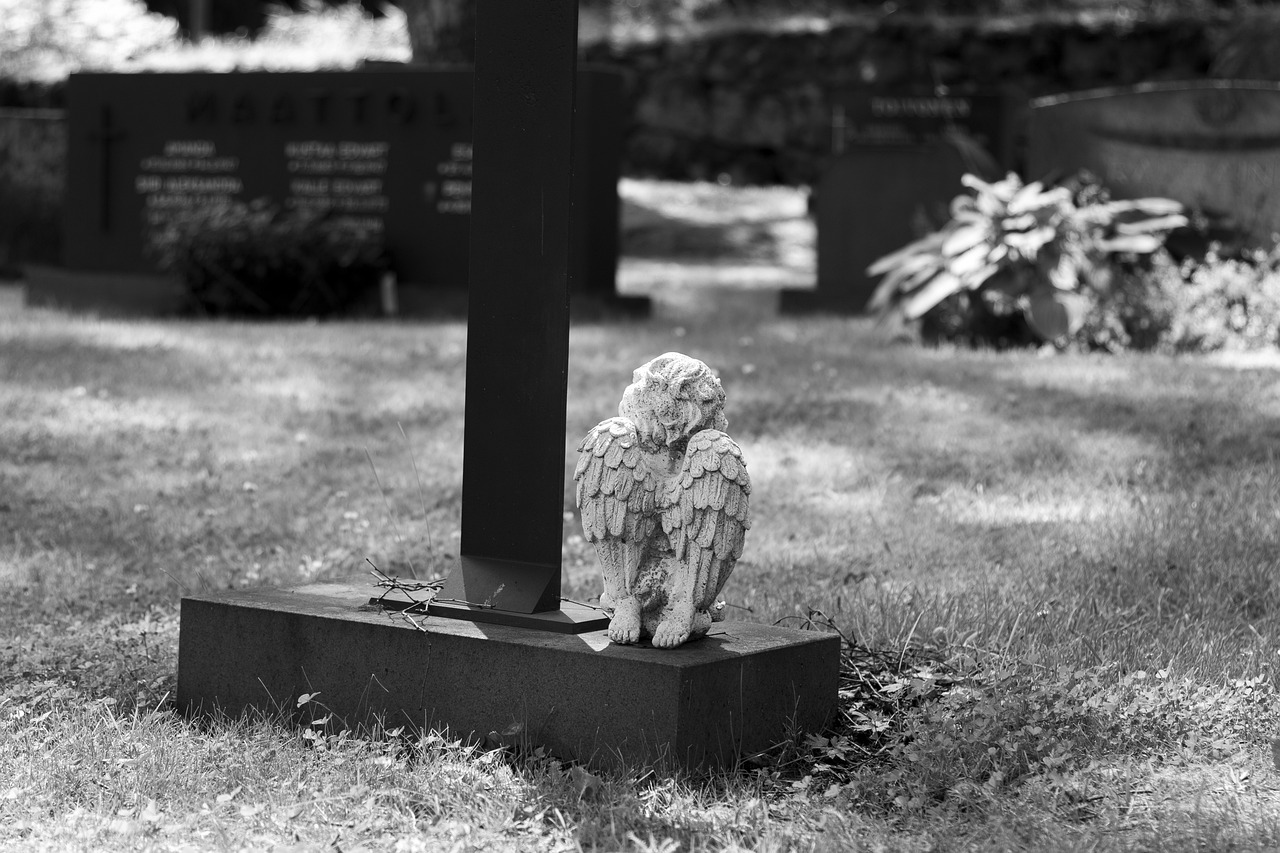
Grief is a universal experience, but the way we express and cope with it can vary dramatically across cultures. Understanding these differences can provide valuable insights into the grieving process, helping us appreciate the rich tapestry of human emotion. For instance, in some cultures, open expressions of grief are encouraged, while in others, individuals may be expected to maintain a stoic demeanor. This divergence can be likened to a beautiful mosaic, where each piece represents a unique cultural perspective on loss.
In many Western cultures, grief is often seen as a private matter. People may grieve in isolation, reflecting on their loss in personal spaces. This contrasts sharply with cultures that emphasize communal mourning. In countries like Mexico, the Day of the Dead (Día de los Muertos) is a vibrant celebration that honors deceased loved ones. Families come together to create altars, share stories, and enjoy the favorite foods of those who have passed. This celebration not only commemorates the dead but also reinforces family bonds, showcasing how grief can be transformed into a collective experience.
Similarly, in some African cultures, communal mourning rituals are integral to the grieving process. These rituals often involve singing, dancing, and storytelling, allowing individuals to express their sorrow openly. They create a supportive environment where emotions can flow freely, reminding us that grief is not something to be hidden but rather shared. Such practices can serve as a powerful reminder that healing often occurs in the presence of others.
On the other hand, in certain Asian cultures, such as Japan, there is a strong emphasis on maintaining harmony and respect for the deceased. The practice of “Kuyō”, or memorial services, is common, where families gather to honor their loved ones through quiet reflection and prayer. This approach highlights a more subdued expression of grief, where the focus is on reverence rather than overt displays of emotion.
It's fascinating to observe how different cultures utilize rituals to navigate grief. For example, in Hindu culture, the practice of “Shraddha” involves performing specific rites to honor the deceased, believed to aid their journey in the afterlife. This not only helps the bereaved find closure but also reinforces their connection to their cultural heritage. In contrast, in some Indigenous cultures, the emphasis may be on storytelling and remembering the individual's life, fostering a sense of continuity and connection.
In summary, the way we experience and express grief is deeply influenced by cultural norms and practices. Understanding these differences not only enriches our perspective on loss but also underscores the importance of empathy and support in the grieving process. By embracing diverse mourning practices, we can learn to navigate our own grief with greater compassion and understanding.
- What are some common ways different cultures express grief?
Different cultures may express grief through communal rituals, private reflection, or celebratory practices, each offering unique ways to honor the deceased. - How can understanding cultural differences in grief help someone who is mourning?
It can provide comfort and insight, allowing individuals to appreciate their own grieving process while respecting the practices of others. - Are there any specific rituals that are particularly impactful in the grieving process?
Yes, rituals such as memorial services, storytelling, and communal gatherings can significantly aid in healing by fostering connection and support.

Rituals play a profound role in the grieving process, offering a sense of structure and comfort during one of life’s most challenging times. When we experience loss, our world can feel chaotic and disoriented. Rituals serve as a guiding light, helping individuals navigate through their emotional turmoil. They provide a tangible way to express grief and honor the memory of loved ones, transforming sorrow into a meaningful experience.
One of the most significant aspects of rituals is their ability to bring people together. Whether it’s a memorial service, a candlelight vigil, or a simple gathering of friends and family, these activities foster a sense of community. They remind us that we are not alone in our grief. In fact, sharing our pain with others can often lighten the emotional load we carry. Think of it as a collective hug—everyone comes together to support one another, creating a warm blanket of understanding and compassion.
Rituals can take many forms, and their significance can vary widely among different cultures. For some, it may involve religious ceremonies, while for others, it might be a personal tradition that holds special meaning. Here are a few examples of common rituals that can help during the grieving process:
- Lighting a candle: This simple act can symbolize hope and remembrance, creating a serene atmosphere for reflection.
- Planting a tree: This serves as a living tribute, allowing the memory of the deceased to grow and thrive in nature.
- Creating a memory box: Filling a box with mementos and letters can be a therapeutic way to process feelings and celebrate life.
These rituals not only provide a way to honor the deceased but also facilitate healing for those left behind. They create a space for individuals to express their feelings openly, whether it’s sadness, anger, or even joy. The act of participating in a ritual can be incredibly cathartic, allowing emotions to surface in a safe environment. It’s like releasing a pressure valve—letting out the pent-up feelings that can otherwise feel overwhelming.
Moreover, the repetition of rituals can be comforting. Engaging in familiar practices can anchor individuals, providing a sense of normalcy amidst the chaos of grief. For instance, observing anniversaries or special dates can serve as a reminder of the love shared, allowing individuals to celebrate the life of the loved one instead of solely focusing on the loss. It’s a gentle way to keep their memory alive and integrate it into our lives.
In addition to personal rituals, community rituals can also play a pivotal role. Participating in group activities such as memorial runs, charity events, or community service in honor of the deceased can help individuals feel connected to a larger purpose. It’s a beautiful way to channel grief into something positive, allowing the memory of a loved one to live on through acts of kindness and generosity.
Ultimately, the role of rituals in the grieving process is invaluable. They offer a framework for understanding and processing loss, creating a bridge between the past and the present. By engaging in meaningful rituals, we can honor our loved ones while also nurturing our own healing journey. The act of remembering becomes a celebration of life, allowing us to carry forward the love and memories that will forever remain in our hearts.
Q: What types of rituals can I create to honor a loved one?
A: You can create personalized rituals such as lighting a candle, writing a letter to your loved one, or holding a gathering with family and friends to share stories and memories.
Q: How can rituals help with the grieving process?
A: Rituals provide structure and a sense of community, allowing individuals to express their emotions and commemorate the life of the deceased, which can be therapeutic and healing.
Q: Are there cultural rituals I should be aware of?
A: Yes, different cultures have unique rituals for mourning. It’s essential to respect and understand these practices, as they can offer insights into how others process grief.

Commemorating loved ones is not just a ritual; it’s a profound way to keep their memory alive in our hearts and minds. When we lose someone dear, the world can feel overwhelmingly empty, like a book with missing pages. Engaging in commemorative practices can fill those gaps, providing a sense of connection and continuity. These practices can range from personal reflections to community gatherings, and each serves a unique purpose in the healing process.
One of the most common ways to honor a loved one is through memorial services. These gatherings allow family and friends to come together, share stories, and celebrate the life of the deceased. It’s a space where laughter and tears coexist, reminding us that grief is not just sorrow; it’s also about cherishing the moments shared. During these services, you might find heartfelt speeches, music that resonates with memories, or even visual displays of photographs that capture the essence of the person we’ve lost.
Another impactful practice is the creation of memory books or scrapbooks. These tangible collections of memories can serve as a comforting reminder of the good times shared. Imagine flipping through pages filled with photographs, notes, and mementos that tell the story of a life well-lived. Each page can spark a memory, allowing you to relive those precious moments and share them with others.
In addition to these personal practices, many cultures have unique traditions that honor the deceased. For instance, in some cultures, it is customary to light candles on significant dates, such as anniversaries or birthdays. This simple act can create a warm, inviting atmosphere that encourages reflection and remembrance. It’s like sending a little message to the universe, saying, “I remember you, and you are still a part of my life.”
Moreover, planting a tree or a garden in memory of a loved one can symbolize the cycle of life and the enduring nature of love. As the tree grows, it serves as a living tribute, reminding us that while our loved ones may no longer be physically present, their spirit continues to thrive in the world around us. This act of nurturing something beautiful can also be incredibly therapeutic, offering a sense of purpose and connection.
Finally, sharing stories and memories with others can be one of the most healing experiences of all. Organizing a memory-sharing circle where friends and family can come together to speak about their experiences can foster a sense of community and support. It’s a reminder that we are not alone in our grief; others are walking this path with us. This collective sharing can be powerful, transforming individual sorrow into a shared journey of remembrance.
In conclusion, commemorative practices are essential in navigating the turbulent waters of grief. They provide a framework for honoring our loved ones while allowing us to process our emotions. Whether through personal reflection, community gatherings, or cultural rituals, these practices serve as a bridge connecting us to those we have lost, ensuring their memories remain alive in our hearts.
- What are some common commemorative practices? Common practices include memorial services, creating memory books, planting trees, and sharing stories with friends and family.
- How can I personalize a memorial service? You can personalize a memorial service by including favorite songs, photos, and stories that highlight the unique personality of your loved one.
- Is it okay to celebrate the life of a deceased loved one? Absolutely! Celebrating their life can be a vital part of the healing process, allowing you to remember the joy they brought into your life.
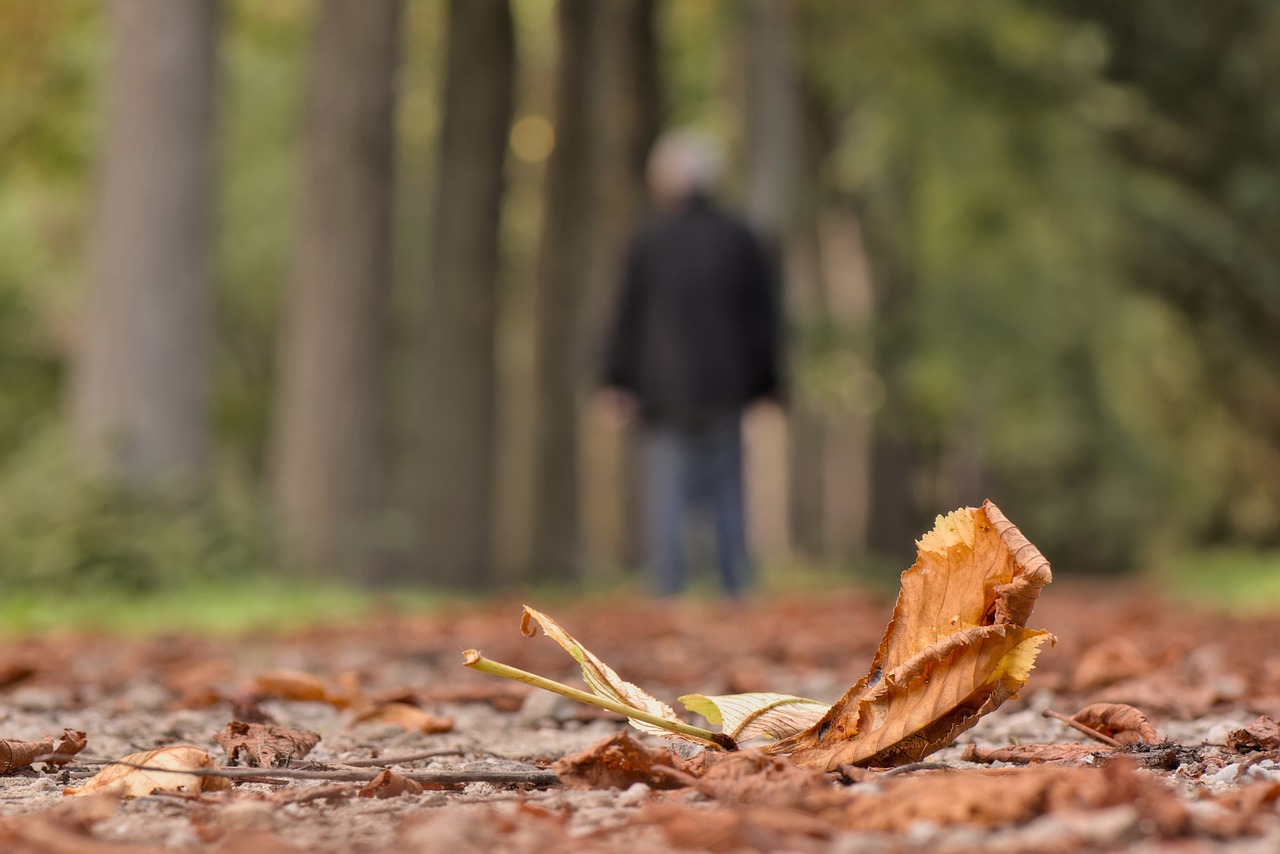
The journey of grief is not a sprint; it's more of a marathon that often stretches far beyond the immediate aftermath of a loss. Many people assume that once the funeral is over and the initial shock has worn off, the grieving process will automatically conclude. However, the **impact of loss can linger** for much longer, shaping our emotional landscape in profound ways. Just like a pebble thrown into a pond creates ripples that spread outward, the effects of grief can touch every aspect of our lives, from relationships to personal well-being.
One of the most surprising aspects of grief is that it can resurface unexpectedly, often triggered by reminders of the deceased. You might hear a song that was special to you both, or perhaps you come across an old photograph that brings back a flood of memories. These moments can reignite feelings of sadness and longing, making it feel as though the loss is fresh all over again. It's essential to understand that this is a normal part of the grieving process and does not mean you haven't healed; rather, it reflects the deep bond you shared with your loved one.
Moreover, the lasting impact of loss can manifest in various ways, affecting not just your emotional state but also your physical health. Studies have shown that prolonged grief can lead to issues such as:
- Depression: A persistent feeling of sadness that can interfere with daily life.
- Anxiety: Heightened feelings of worry and fear about the future.
- Physical Symptoms: Such as fatigue, insomnia, or even chronic pain.
It's crucial to recognize these signs and understand that they are part of the broader grieving experience. Just as you would seek medical attention for a physical ailment, it's equally important to address your emotional well-being. Ignoring these feelings can lead to a deeper spiral into grief, making it harder to cope in the long run.
Another significant aspect of the lasting impact of loss is how it alters our relationships. Friends and family members may not fully understand what you're going through, leading to feelings of isolation. It's vital to communicate openly about your needs and feelings, even if it feels challenging. While some relationships may strain under the weight of grief, others can strengthen, as shared experiences of loss often bring people closer together.
As time passes, many individuals find that they can incorporate their loss into their lives in a meaningful way. This can involve creating new routines that honor the memory of the deceased or finding ways to celebrate their life. For instance, you might consider:
- Establishing a yearly memorial gathering with friends and family.
- Engaging in charitable activities that reflect the interests of your loved one.
- Starting a journal to document your feelings and memories, allowing for reflection and healing.
Ultimately, the lasting impact of loss is a testament to the love and connection you shared with the person who has passed. While the journey may be fraught with challenges, it can also lead to personal growth and resilience. Embracing the complexity of grief allows you to honor your loved one's memory and continue to live a fulfilling life, even in the face of loss.
Q: How long does grief last?
A: Grief is a highly individual experience, and there is no set timeline. It can last for months or even years, with some people experiencing waves of grief long after the initial loss.
Q: Is it normal to feel angry after a loss?
A: Yes, anger is a common stage of grief. It's essential to acknowledge these feelings rather than suppress them, as they are part of the healing process.
Q: Can I heal from grief?
A: While you may never completely "get over" your loss, you can learn to cope with it and find ways to incorporate the memory of your loved one into your life positively.
Frequently Asked Questions
- What are the common stages of grief?
The stages of grief typically include denial, anger, bargaining, depression, and acceptance. However, it's important to note that everyone experiences these stages differently. Some may not go through all of them, and they can occur in any order. Grief is a highly personal journey, and understanding this can help individuals navigate their feelings more effectively.
- How can I cope with grief after a disaster?
Coping with grief can be incredibly challenging, especially after a disaster. Some effective strategies include seeking support from friends and family, engaging in self-care practices like mindfulness or journaling, and considering professional help if needed. Remember, it's okay to feel overwhelmed; taking small steps towards healing can make a significant difference.
- Why is a support system important during grief?
A strong support system can provide emotional comfort and practical help during tough times. Friends and family can offer a listening ear, share memories, or simply be present. This connection can lessen feelings of isolation and remind you that you're not alone in your grief journey.
- When should I seek professional help for grief?
If your grief feels unmanageable, or you find it difficult to function in daily life, it might be time to seek professional help. Therapists and counselors can offer guidance and coping strategies tailored to your unique situation, helping you navigate complex emotions and find a path toward healing.
- What self-help techniques can aid in the grieving process?
Self-help techniques like mindfulness, journaling, and engaging in physical activity can significantly aid in processing grief. These practices allow you to express your feelings, reflect on your emotions, and find moments of peace amidst the turmoil. Experiment with different techniques to see what resonates with you!
- How do different cultures approach grief?
Cultural perspectives on grief can vary widely, influencing how individuals express their emotions and participate in mourning practices. Some cultures may emphasize communal support and rituals, while others may focus on personal reflection. Understanding these differences can provide valuable insights into the grieving process and help individuals find their own way to cope.
- What role do rituals play in the grieving process?
Rituals can offer structure and comfort during times of loss. They can range from memorial services to personal acts of remembrance. Engaging in these practices can help individuals honor their loved ones and provide a sense of closure, making the grieving process feel a bit more manageable.
- How can I commemorate a loved one?
Commemorating a loved one can be a beautiful way to keep their memory alive. You might consider creating a memory box, planting a tree in their honor, or participating in charitable activities that reflect their values. These acts can help maintain a connection with those we've lost and provide a sense of purpose in our grief.
- Is it normal for grief to last a long time?
Yes, it's completely normal for grief to linger long after the initial loss. Each person's journey is unique, and the timeline for healing varies widely. Even years later, you may find yourself feeling waves of grief. Acknowledging these feelings and seeking support when needed can help you continue to cope over time.








